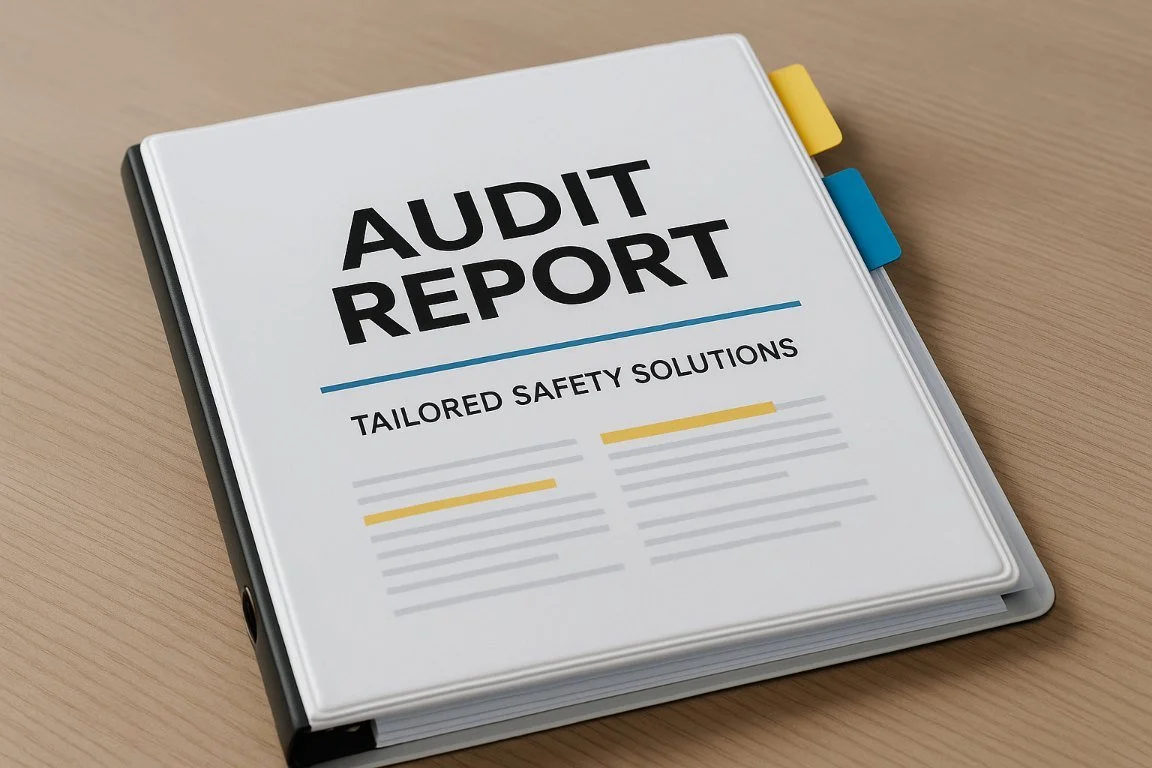What to Expect During a Health and Safety Audit
A Health and Safety Audit is one of the most effective ways to ensure your workplace is compliant, well-managed, and operating safely. Whether you’re preparing for your first audit or looking to strengthen your existing processes, understanding what happens during an audit can help you feel confident and ready. At Tailored Safety, we specialise in delivering practical, comprehensive Health and Safety Audits to help organisations across all industries stay compliant. Businesses preparing for external verification or accreditation may benefit from SSIP and pre-qualification audit support to ensure their documentation and systems meet recognised industry standards before inspection.
Below, we break down what you can expect during a Health and Safety Audit and how to get the most value from the process.
1. An Initial Consultation and Audit Plan
Before the audit begins, your auditor will take time to learn about your business, operations and existing safety systems. This helps define the scope of the audit, including:
What your organisation does
Any high-risk activities involved
Current policies and procedures
Any specific concerns you want to address
This ensures the audit is tailored to your workplace—not a generic off-the-shelf checklist.
2. A Review of Documentation and Policies
A core part of any Health and Safety Audit is a detailed review of your documentation. Your auditor may examine:
Health and safety policies
Risk assessments
Safe systems of work
Training records
Incident and accident logs
Fire safety documentation
Inspection and maintenance records
This stage helps determine how robust and compliant your management system is.
3. Workplace Inspection
The auditor will then carry out a physical inspection of your site to see how well your systems are being followed in practice. This may include reviewing:
Housekeeping standards
Use of PPE
Equipment guarding and machinery safety
Manual handling activities
Storage and traffic routes
Emergency and fire safety arrangements
COSHH controls
The goal is not to criticise, but to identify risks, strengths, and improvement opportunities.
4. Interviews and Staff Engagement
Speaking to staff is an important part of understanding the real-world safety culture in your organisation. The auditor may ask employees about:
Their understanding of safety procedures
Whether training feels adequate
How safety issues are reported
Day-to-day safety concerns
This provides valuable insight into how well your safety policies translate into everyday behaviour.
5. A Comprehensive Audit Report
After the audit, you’ll receive a detailed report outlining:
Your compliance status
Findings from document and site reviews
Strengths and existing good practice
Gaps and areas requiring improvement
Clear, prioritised recommendations
At Tailored Safety, all recommendations are practical, achievable, and aligned with UK legislation. Professional health and safety audits typically involve a structured review of policies, risk assessments, training records, and site practices to identify areas for improvement and ensure legal compliance.
6. Action Planning & Follow-Up Support
A good audit doesn’t end with the report—it helps you move forward.
Tailored Safety can provide hands-on support with:
Updating safety documentation
Developing risk assessments
Delivering staff training
Creating new procedures
Acting as your Competent Person
Learn more about our audit process and ongoing support here:
👉 Health and Safety Audits by Tailored Safety
Why Health and Safety Audits Matter
Regular audits bring lasting benefits, including:
Fewer accidents and incidents
Stronger legal compliance
Greater employee confidence
Reduced business risk
Better reputation with customers and regulators
They also demonstrate a genuine commitment to safe, responsible operations.
Get Prepared with Tailored Safety
Whether you're due for a routine audit or want to improve your safety performance, Tailored Safety is here to help. Our team offers expert, tailored Health and Safety Audits designed to strengthen your workplace safety in a practical and supportive way.
Visit www.tailoredsafety.co.uk to learn more or book your audit today.

